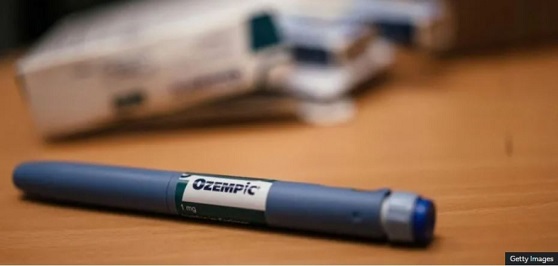A global alert about fake versions of Ozempic - which has become popular as a way of losing weight - has been issued by the World Health Organization (WHO).
The drug is sometimes known as a "skinny jab" despite its main purpose being a treatment for type 2 diabetes.
The WHO said the fake medicines could pose a danger to health.
The organisation advised people to source the drug only through reputable sources, such as a doctor, rather than obscure sites online or through social media.
The active ingredient in Ozempic - semaglutide - helps people with type 2 diabetes control the amount of sugar in their blood.
However, the weekly injection also signals to the brain that we're full. So the drug helps people lose weight by reducing the urge to eat.
People without diabetes have been getting hold of the drug as a weight-loss medication.
It has led to shortages for people with type 2 diabetes and created a market for counterfeit drugs.
The WHO said it had been tracking rising reports of dodgy Ozempic all around the world since 2022.
Fake batches have been seized by the authorities in the UK, US and Brazil.
Risk to health
The WHO warned some fake injections may not contain semaglutide at all or others may contain other medications, such as insulin, leading to "unpredictable" effects.
"These falsified products could have harmful effects to people’s health," the WHO said.
They had come into the country from legitimate suppliers in Austria and Germany, and appeared to have authentic packaging.
Dr Alison Cave, the organisation's chief safety officer, said: "Buying semaglutide from illegally trading online suppliers significantly increases the risk of getting a product which is either falsified or not licensed for use in the UK."
She said injecting such products "may put your health at risk".
A higher strength version of Ozempic has been developed specifically for weight-loss and is marketed as Wegovy.
This is being offered at specialist weight-loss clinics on the NHS in the UK.
BBC





